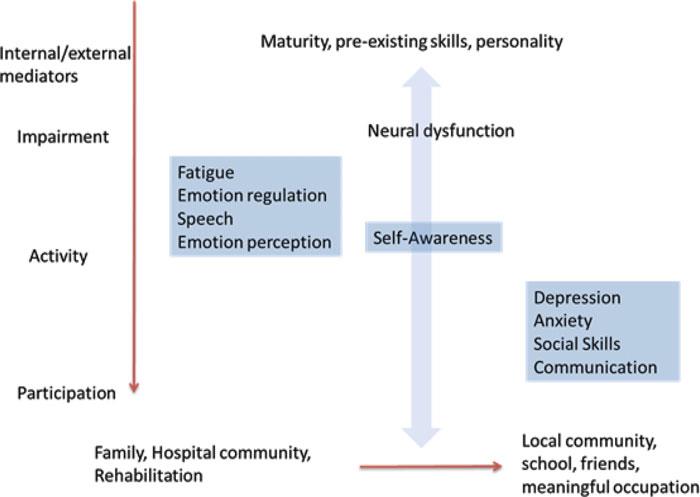Model for Psychosocial Rehabilitation
Model for Psychosocial Rehabilitation
Moving Ahead is specifically concerned with improving psychosocial outcomes for people with a traumatic brain injury (TBI). Our model below indicates that psychosocial outcomes are influenced by pre-existing skills, personality, maturity, as well as social and cultural background. The neural dysfunction caused by the brain injury is overlaid onto this, and these combined factors result in an array of impairments, as well as areas of resilience.
Our model for psychosocial rehabilitation emphasizes transitions – from impairment to participation – from hospital to community. Different kinds of challenges in psychosocial function emerge at different stages of recovery from a brain injury and effective remediation needs to be guided by this.
Early on, problems like fatigue, speech difficulties, poor perception of emotions in others and poor emotion regulation may be important targets for remediation.
As the person with TBI starts the transition towards discharge from the hospital and re-engagement with school, work, family and community, problems with self-awareness (e.g. knowledge of current strengths and weaknesses) becomes critical.
Later when they are back in the community, other hurdles may become more important. At this time it may be critical to address depression and anxiety, make sure the person has functional social skills, and that their ability to communicate effectively with significant others and the community is maximized.
Our CRE is conducting research into each of these domains (shaded in blue below), spanning direct remediation of basic impairments, through to orchestrating opportunities to maximize activity and participation.
For more information about our model for psychosocial rehabilitation, please click here.
